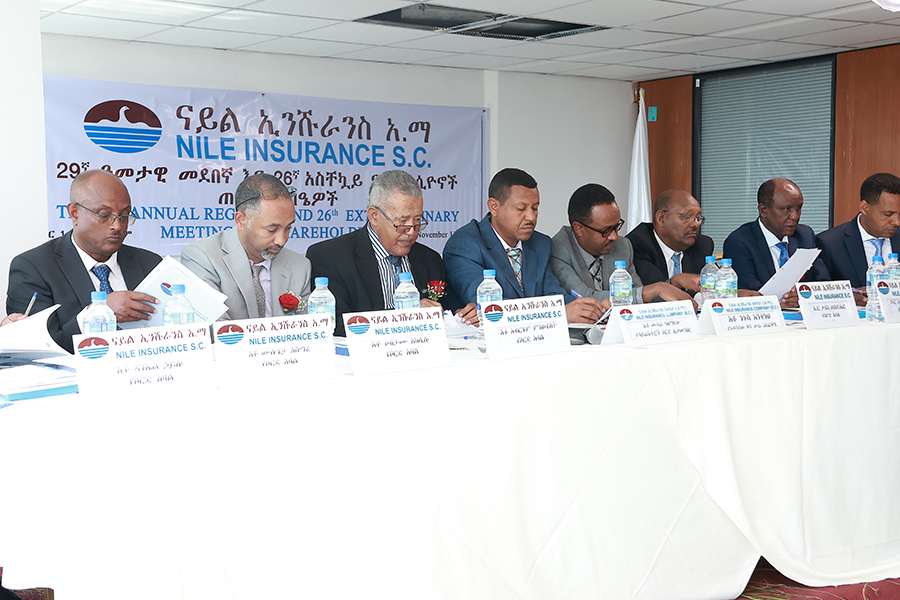
Radar | Nov 11,2023
Jun 13 , 2020
By Yonas Biru (PhD) , Yohannes Gedamu (PhD)
The Grand Ethiopian Renaissance Dam (GERD) on the Blue Nile that Egypt and Ethiopia are at odds over is more than 30Km from Ethiopia's border with Sudan. The Dam's enormous hydro-electric potential that might allow future power-sharing arrangements and the project's natural proximity to Sudan puts the country in an enviable position. Moreover, as several Sudanese officials have acknowledged, besides avoiding destructive floods, the GERD also presents Sudan with an opportunity for agricultural transformation.
Unfortunately, the Sudanese authorities' recent reluctance in re-asserting their past stance over the Renaissance Dam is raising questions in Nile Basin countries. The country's position of not taking a position is the result of political expediency reflected in a choreographed dance that is tuned to the dynamic of local power centres and strategic manoeuvring with an eye for Sudan's long-term interests.
In the past, Sudanese Prime Minister Abdalla Hamdok has expressed views in line with Ethiopia's position on the GERD. Nonetheless, his administration's recent lack of assertiveness on such a critical regional matter reveals increasing tensions between General Abdel Fattah Abdelrahman, head of Sudan's Sovereignty Council, and the country's collective transitional head of state, who leans heavily toward Egypt.
The tension between the civilian administration and the 11-member military Sovereignty Council has caused an unnecessary gap between Sudan's short and long-term interests. This has increasingly jeopardised the high level of trust that the country has gained both from Ethiopia and the other upper Nile riparian states without necessarily winning favours with Egypt. While the internal dynamics might weigh heavily on whatever Prime Minister Hamdok decides, his administration's recent lack of resolve entails costly miscalculations.
There is a reason for this. Though Sudan's interests align with those of Ethiopia in terms of seeing the Dam in full operation as soon as possible and breaking Egypt's hegemony over the Nile River, it appears that Sudan is contradicting itself in terms of those same interests.
Its long-term strategy of reaching a comprehensive water-sharing treaty between the three countries should take precedence over its short-term, but vital, interest in expediting the completion of the Dam.
In Prime Minister Hamdok's calculus, Sudan finds it prudent to use Ethiopia as long-term leverage to end Egypt's colonial-era hegemonic control over the Nile without appearing to side with Ethiopia. Moreover, by opposing the filling of the Dam without what they referred to as a "comprehensive agreement," his administration has also been tactfully siding with Egypt to appease its Egypt-sympathising military generals.
Such an approach is problematic for one simple reason: both Egypt and Ethiopia understand Sudan's positions on the GERD.
For Sudan, the Dam presents a historic opportunity that would make it the "New Gift of the Nile." Unfortunately, the fact that Hamdok's administration is playing two different hands in this game of geopolitical cards and attempting to present itself as neutral rather than asserting its interests and making its case unambiguously clear is undermining the nation's vital interests.
Sudan's delicate dance between Ethiopia and Egypt, which is not a substitute for a strategy, is manifested in its June 2, 2020, letter to the UN Security Council. For example, Egypt insists that the tripartite negotiation in Washington between Ethiopia, Egypt and Sudan has been concluded and the international community must pressure Ethiopia to sign onto the "agreement text" that the United States and the World Bank have drafted without a mandate or consent from Ethiopia and Sudan. Like Ethiopia, Sudan has refused to endorse the "legal text" that purports to resolve technical issues but underhandedly favours Egypt's hegemonic water-sharing position.
Another area on which Sudan is not in agreement with Egypt is whether the noted US and World Bank text should be an integral part of any future mediation, as Egypt insists. Sudan unequivocally favours drafting "a new text."
Moreover, contrary to Egypt, which sees nothing positive about the GERD, Sudan's letter to the UN lists a string of benefits Sudan stands to gain from it.
Some of the potential benefits listed in Sudan's letter included regulating the water flow of the Blue Nile, thus reducing the annual floods during the rainy season; enabling Sudan to better manage its irrigation system; increasing the hydropower generation from existing hydropower plants; and increasing the navigational depth along the Blue Nile and other Nile rivers.
Where Sudan parts ways from Ethiopia is also where it parts ways from its own long-established official position. This is where the delicate dance turns into wobbling on a slippery slope, undermining Sudan's long-term strategy rather than advancing it.
"With this gigantic size, the GERD risks causing significant negative impacts on Sudan if not properly designed, constructed, filled and operated. These impacts range from threatening the lives and safety of millions of Sudanese citizens living directly downstream to the GRED," stated Sudan's letter.
The statement about the design and construction of the GERD, however, contradicts Sudan's official position under two administrations.
"[GERD] does not pose a threat to Sudan," former President Omar al-Bashir's administration asserted publicly in 2013.
The new administration's position is no different.
"The percentage possibility of breakdown or collapse is almost non-existent according to its design and the implementation of the latest data and technology for building dams available globally at present," Yasser Abbas, Sudanese Irrigation minister, stated in an interview with Egyptian news portal Masrawy. "The Renaissance Dam's degree of safety is better than that of Sudanese dams and Egypt's High Dam," he said in a televised interview.
The minister attributed the safety of the Ethiopian Dam to state-of-the-art technology and high-performance materials used in its construction.
Another negative the Sudanese letter to the UN highlighted is sediment reduction.
"The annual sediment carried by the river flood is a good natural fertiliser, the quantity and quality of the sediment will be significantly reduced," it asserted.
This, too, stands in stark contrast with previous public statements by Sudanese officials that the GERD will increase the area of irrigated land and the intensification of agriculture in the current areas and also allow huge sums to be saved that were formerly allocated to removing the silt from irrigation canals.
Though Sudan has consistently highlighted that the GERD has both pros and cons, its position has been and continues to be that the pros significantly outweigh the cons. In this resides its fundamental difference with Egypt and its continued rejection of Egypt's courting to stand with it.
Despite such consistent affirmations of its positions in the past, Sudan finds itself in a state of ambivalence that is uncharacteristic of Prime Minister Hamdok's promising administration. Regrettably, as a matter of local as well as regional political expediency, Sudan now wants Ethiopia to carry the mantle to challenge Egypt's hegemonic claim over the Nile.
In the meantime, it supports Egypt's request to stop Ethiopia from filling the GERD prior to reaching a comprehensive agreement, echoing Egypt's groundless suggestion that the design and the construction of the "gigantic" Dam represents a serious threat to millions of its population.
If Sudan is not worried about the filling of the Dam and what it wants is a comprehensive water rights concession from Egypt, it can openly state as such. If siding with Egypt on short-term issues is a strategy to bring Ethiopia to the negotiating table, Prime Minister Hamdok's administration needs to have a principled position on long-term strategies without shooting itself in the foot in the short-term.
Unless the Prime Minister corrects the diplomatic wobbling and stands firm to defend Sudan's interest, he could further risk a continuation of past Egyptian attempts to maneuver around Sudanese internal matters, thereby undermining the sovereignty and strategic interests of his country.
PUBLISHED ON
Jun 13,2020 [ VOL
21 , NO
1050]

Radar | Nov 11,2023

Commentaries | Aug 22,2020
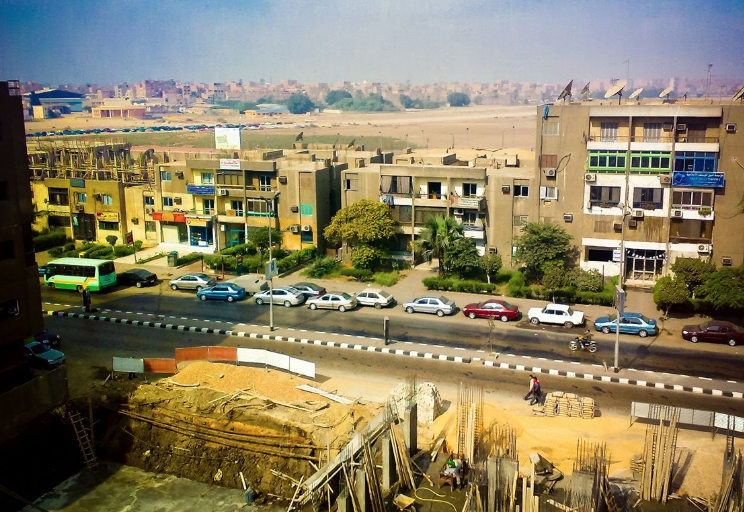
Fortune News | Jun 08,2019
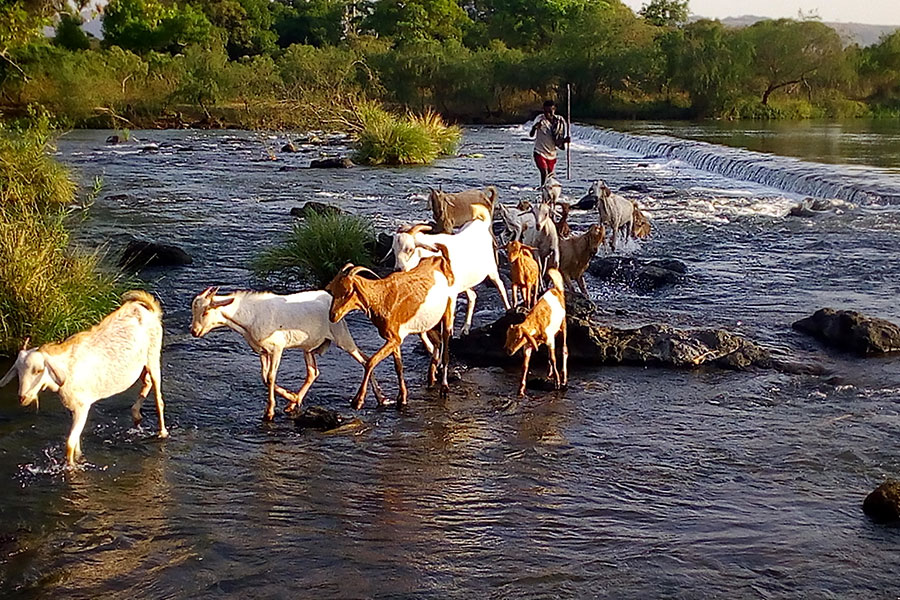
Radar | Mar 07,2020

Radar | Jun 03,2023

Editorial | May 13,2023

Viewpoints | Dec 04,2020

Radar | Nov 14,2020
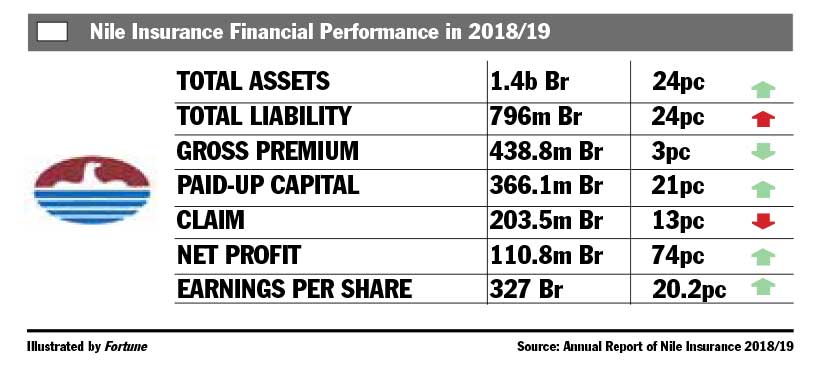
Fortune News | Dec 21,2019
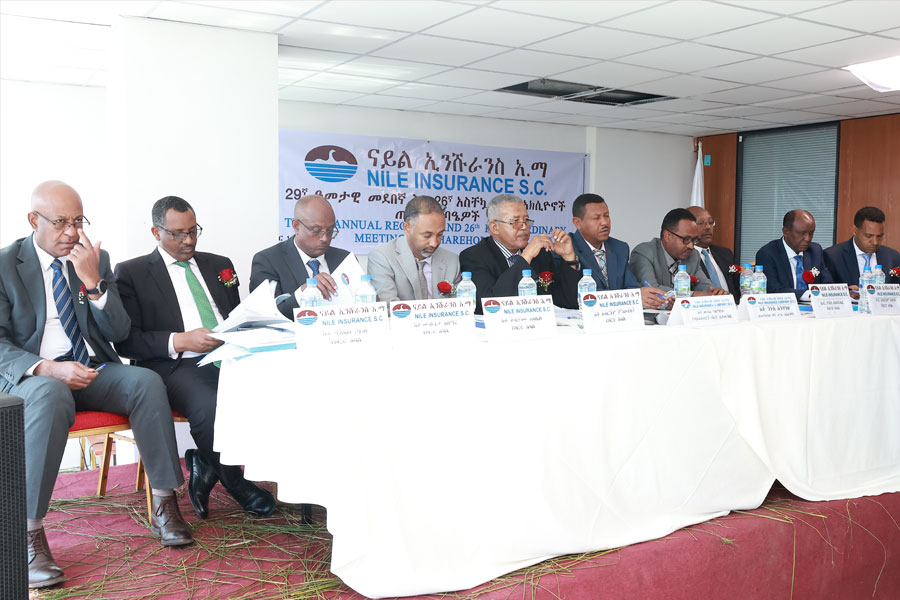
News Analysis | Jun 15,2024

My Opinion | 131770 Views | Aug 14,2021

My Opinion | 128154 Views | Aug 21,2021

My Opinion | 126099 Views | Sep 10,2021

My Opinion | 123721 Views | Aug 07,2021

Dec 22 , 2024 . By TIZITA SHEWAFERAW
Charged with transforming colossal state-owned enterprises into modern and competitiv...

Aug 18 , 2024 . By AKSAH ITALO
Although predictable Yonas Zerihun's job in the ride-hailing service is not immune to...

Jul 28 , 2024 . By TIZITA SHEWAFERAW
Unhabitual, perhaps too many, Samuel Gebreyohannes, 38, used to occasionally enjoy a couple of beers at breakfast. However, he recently swit...

Jul 13 , 2024 . By AKSAH ITALO
Investors who rely on tractors, trucks, and field vehicles for commuting, transporting commodities, and f...

Jul 5 , 2025
Six years ago, Ethiopia was the darling of international liberal commentators. A year...

Jun 28 , 2025
Meseret Damtie, the assertive auditor general, has never been shy about naming names...

Jun 21 , 2025
A well-worn adage says, “Budget is not destiny, but it is direction.” Examining t...

Jun 14 , 2025
Yet again, the Horn of Africa is bracing for trouble. A region already frayed by wars...

Jul 6 , 2025 . By BEZAWIT HULUAGER
The federal legislature gave Prime Minister Abiy Ahmed (PhD) what he wanted: a 1.9 tr...

Jul 6 , 2025 . By YITBAREK GETACHEW
In a city rising skyward at breakneck speed, a reckoning has arrived. Authorities in...

Jul 6 , 2025 . By NAHOM AYELE
A landmark directive from the Ministry of Finance signals a paradigm shift in the cou...

Jul 6 , 2025 . By NAHOM AYELE
Awash Bank has announced plans to establish a dedicated investment banking subsidiary...